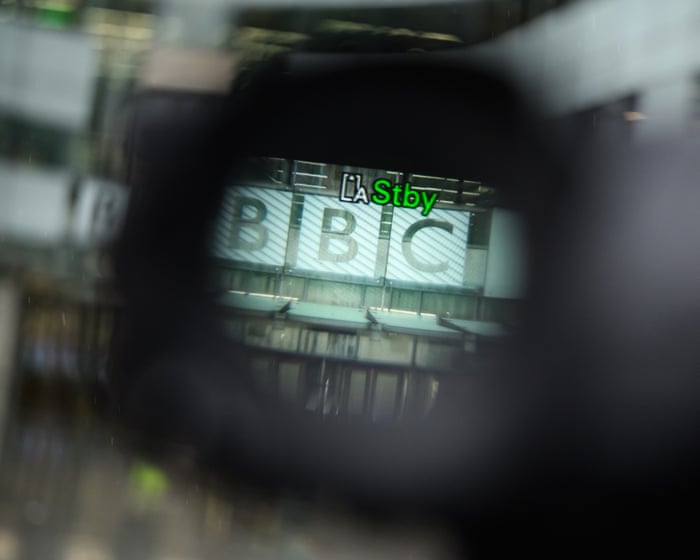According to The Guardian, a BBC board member with ties to the Conservative Party spearheaded efforts to pressure the corporation’s leadership regarding allegations of systemic bias in its coverage of Donald Trump, Gaza, and transgender rights.
Sources revealed that Robbie Gibb, who served as Theresa May’s communications chief and was appointed to the BBC board under Boris Johnson’s government, amplified these criticisms during crucial board meetings. These discussions preceded the unexpected resignations of Director General Tim Davie and BBC News head Deborah Turness.
In a Guardian article, Liberal Democrat leader Ed Davey urged for Gibb’s removal from the BBC board before the search for a new director general commences.
In another dramatic development for the BBC, Donald Trump threatened a billion-dollar lawsuit over a Panorama episode from over a year ago that edited one of his speeches. A legal letter demanded the immediate retraction of what it called “false, defamatory, disparaging, and inflammatory statements” about Trump.
This editing issue was among criticisms raised in a memo by Michael Prescott, a former independent external adviser to the BBC’s editorial guidelines and standards committee, who left his position last summer.
After a week of internal criticism for not addressing Prescott’s claims, BBC chair Samir Shah apologized on Monday for the Trump speech edit, acknowledging an “error of judgment” in how the program spliced together two parts of Trump’s January 2021 speech preceding the Capitol attack.
However, in a letter to the Commons culture, media and sport committee, Shah described Prescott’s memo as a “partial” and “personal” account that didn’t reflect the full scope of internal discussions, asserting that concerns hadn’t been ignored.
BBC journalists showed their support for Turness by applauding her at an editorial meeting, indicating their view of the board’s crisis management.
While BBC insiders acknowledge some validity to Prescott’s criticisms, there are concerns they’re being used in a political attack from within the organization. Attention has focused on the relationship between Prescott and Gibb, with sources stating Gibb—previously accused of editorial interference—took the lead in two board meetings discussing Prescott’s memo, the most recent being last Thursday.
Gibb is one of 13 board members, but sources expressed concerns about the editorial experience of many others. Some newer members reportedly sided with Gibb, who has held his position for four years. One board member supportive of the BBC’s editorial efforts was absent from last week’s meeting where increased pressure was placed on Turness regarding Prescott’s memo.
Insiders noted that the board’s lack of editorial expertise gave Gibb significant influence during discussions.
Allegations of a politically motivated pressure campaign from the right have been denied. Boris Johnson dismissed such suggestions as “complete and utter nonsense,” while the BBC emphasized Gibb was merely one member of the four-person panel that appointed Prescott and one of 13 board members. Prescott stated his criticisms weren’t politically motivated.
When asked to comment on Gibb’s behalf, the BBC declined to discuss individual board meetings, stating minutes would be published as usual.In an article for the Guardian, Davey demanded Gibb’s immediate removal.
He wrote, “Not only was Gibb the communications director for Conservative Prime Minister Theresa May and an editorial adviser at GB News before Johnson appointed him, but he has also been repeatedly accused of interfering with editorial decisions. This is completely unacceptable for a board member—especially one who is such a politically partisan appointment.
“To protect the BBC’s independence, impartiality, and public trust, Gibb should play no part in selecting the new director general. The government must remove him from the board right away—and put a stop to political appointments altogether, as they severely undermine the BBC.”
However, the government lacks the formal authority to dismiss a BBC board member. Gibb’s term is set to last until 2028.
A government source commented, “That’s for the board to handle. Our hands are tied.” They added, “We hope all this can eventually drive change and help the BBC strengthen its position.”
In reply to Prescott’s memo, Shah rejected the wider accusations of bias. He stated that Prescott “does not give a complete account of the discussions, decisions, and actions that took place.” He also noted that some issues Prescott raised were not new and had already been reviewed by the BBC.
Shah said, “Some coverage of Mr. Prescott’s memo has suggested he ‘uncovered’ a list of stories and topics the BBC tried to ‘bury.’ That interpretation is simply false. Another widespread belief in the reporting is that the BBC has done nothing to address these problems. That is also untrue.
“During the three years Mr. Prescott advised the committee, the BBC delivered thousands of hours of exceptional journalism across TV, radio, online, and at national, regional, and international levels. This doesn’t lessen the importance the BBC board places on resolving the issues Mr. Prescott highlighted. But it’s also crucial to keep a balanced perspective.”
Meanwhile, the BBC is considering how to respond to a legal letter from Trump’s lawyer, Alejandro Brito. The corporation has until Friday to address its demands.
The letter warns that if the deadline is missed, Trump will have “no choice but to enforce his legal rights, all of which are reserved and not waived, including by filing a lawsuit for no less than $1,000,000,000 in damages.”
Frequently Asked Questions
Of course Here is a list of FAQs about the reported accusations of systemic bias at the BBC framed in a natural tone with direct answers
Basic Understanding The Situation
1 What is this story about
A BBC board member who is reported to have connections to the Conservative Party is said to have led internal accusations that the BBC has a deepseated systemic bias
2 Who is the board member involved
While reports often name the individual the core issue is the allegation of a political connection influencing an internal investigation into bias rather than the specific person The key point is the potential conflict of interest
3 What does systemic bias mean
It means the bias isnt just from a few individuals but is built into the organizations culture processes and structures influencing output consistently over time
4 What kind of bias are they being accused of
The specific nature of the alleged bias is often at the heart of the debate Critics from the right often allege a leftwing or liberal bias while critics from the left sometimes allege a conservative or proestablishment bias
Implications Deeper Questions
5 Why does the board members link to the Conservative Party matter
It raises questions about a potential conflict of interest If someone with political affiliations is leading an investigation into bias it can be seen as a politically motivated act rather than a neutral impartial review
6 What is the BBCs official position on impartiality
The BBC has a fundamental commitment to impartiality which is a core part of its Royal Charter It has established guidelines and processes to ensure its reporting is fair and balanced
7 What impact could this have on public trust in the BBC
It could significantly damage trust If the public believes the BBCs governance is influenced by political parties they may question the independence and objectivity of its news reporting
8 Has the BBC responded to these reports
Typically the BBCs official response is to state that its governance and editorial processes are robust and designed to uphold impartiality and that it treats all such concerns seriously through its formal channels
9 What is the difference between bias and a complaint of bias
Bias refers to a real or perceived slant in reporting A complaint of bias is an allegation made by someone This story is about the act of making a high



